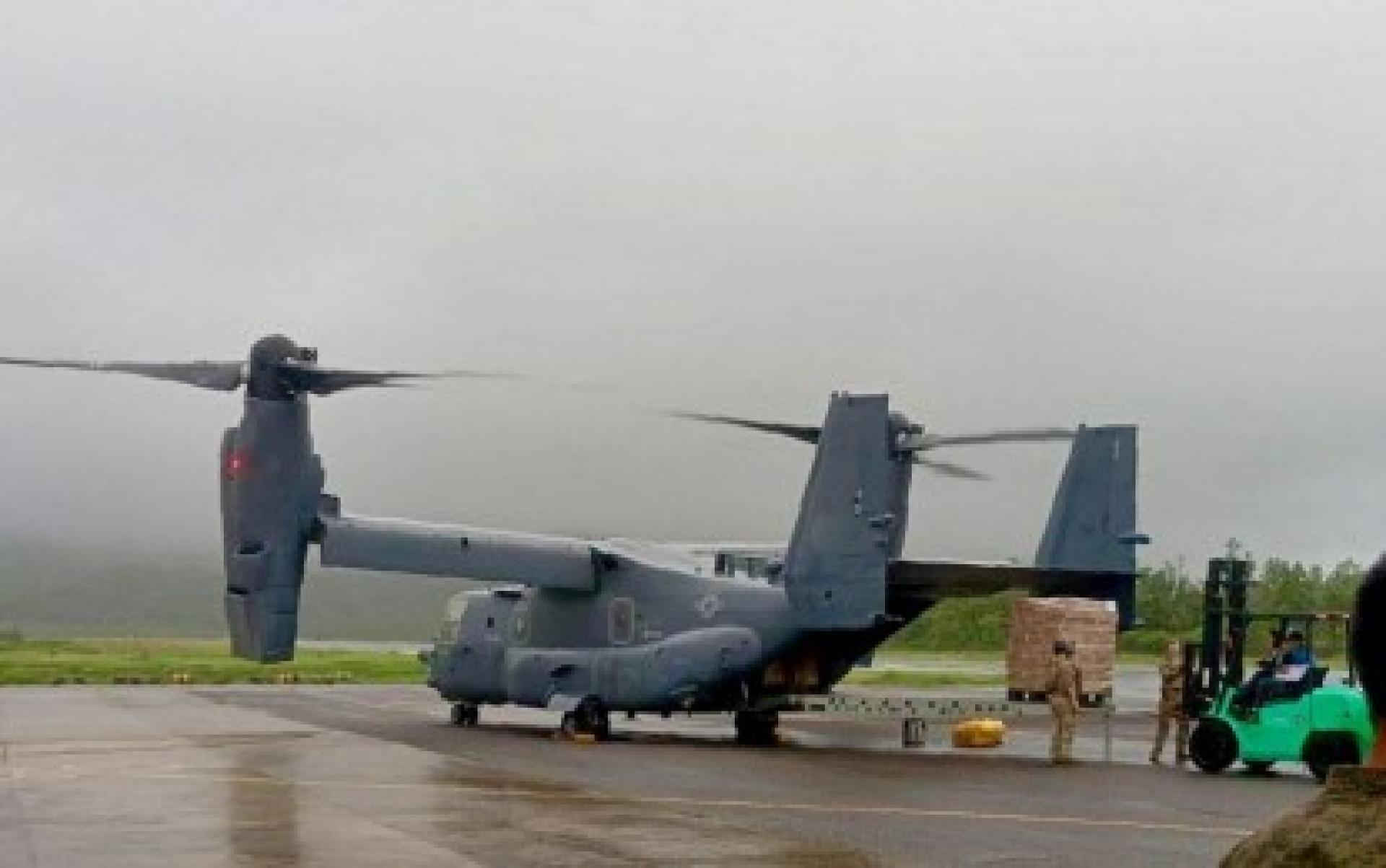(Manila, 9th — Integrated News) Philippine House Speaker Ferdinand Martin Romualdez on Saturday expressed gratitude to the US government after it announced an additional 13.8 million pesos (US$250,000) in emergency aid to provide temporary shelter and hygiene supplies to 3,000 Filipino families affected by July’s southwest monsoon rains.
Romualdez described the supplemental aid as a reflection of the strong and enduring partnership between the Philippines and the US, emphasizing that the latest humanitarian support demonstrates "our oldest ally’s continued solidarity in times of adversity."
He stated: "We deeply appreciate this generous assistance, which will greatly help many compatriots rebuild their homes and return to normal life. This move by Washington reaffirms America’s firm commitment to stand with the Filipino people through good times and bad."
The US Embassy in Manila announced the additional funding on Friday, which will provide emergency shelter materials and hygiene supplies to about 15,000 disaster victims still staying in evacuation centers in Rizal, Laguna, Bulacan, and Pampanga provinces.
With this supplemental aid, the total value of US humanitarian support for the Philippines’ disaster response now reaches 27.6 million pesos (US$500,000).
The International Organization for Migration (IOM), in cooperation with the Department of Social Welfare and Development, will distribute waterproof tarpaulins, repair kits, and basic daily necessities to families whose homes have been damaged or destroyed.
Each kit contains essential construction tools and materials to help affected families begin rebuilding efforts.
Hygiene kits—including soap, buckets, and cleaning supplies—will also be distributed, and IOM will monitor sanitary conditions in evacuation centers to help prevent the spread of disease.
U.S. Chargé d’Affaires ad interim in the Philippines, Eugene Robert Young, said the US appreciates the opportunity to work with important partners such as IOM, the World Food Programme, the Department of Social Welfare and Development, and the National Disaster Risk Reduction and Management Council to "help affected families recover and rebuild."
Earlier, the US government, through the World Food Programme, provided 13.8 million pesos (US$250,000) in aid, delivering 47,700 family food packs to more than 200,000 beneficiaries in northern and central Luzon. US military aircraft also assisted Philippine armed forces in transporting 6,300 food packs to 18,000 disaster victims in the Batanes Islands.
Romualdez urged the Department of Social Welfare and Development to ensure efficient and transparent distribution of the latest aid, prioritizing low-income families, especially those with the elderly, persons with disabilities, and young children.
He said: "Our alliance with the United States goes beyond defense and economic cooperation; it is a relationship built on genuine compassion and friendship. America has time and again reached out when we needed it most, and for this we are truly grateful."
He stated: "We deeply appreciate this generous assistance, which will greatly help many compatriots rebuild their homes and return to normal life. This move by Washington reaffirms America’s firm commitment to stand with the Filipino people through good times and bad."
The US Embassy in Manila announced the additional funding on Friday, which will provide emergency shelter materials and hygiene supplies to about 15,000 disaster victims still staying in evacuation centers in Rizal, Laguna, Bulacan, and Pampanga provinces.
With this supplemental aid, the total value of US humanitarian support for the Philippines’ disaster response now reaches 27.6 million pesos (US$500,000).
The International Organization for Migration (IOM), in cooperation with the Department of Social Welfare and Development, will distribute waterproof tarpaulins, repair kits, and basic daily necessities to families whose homes have been damaged or destroyed.
Each kit contains essential construction tools and materials to help affected families begin rebuilding efforts.
Hygiene kits—including soap, buckets, and cleaning supplies—will also be distributed, and IOM will monitor sanitary conditions in evacuation centers to help prevent the spread of disease.
U.S. Chargé d’Affaires ad interim in the Philippines, Eugene Robert Young, said the US appreciates the opportunity to work with important partners such as IOM, the World Food Programme, the Department of Social Welfare and Development, and the National Disaster Risk Reduction and Management Council to "help affected families recover and rebuild."
Earlier, the US government, through the World Food Programme, provided 13.8 million pesos (US$250,000) in aid, delivering 47,700 family food packs to more than 200,000 beneficiaries in northern and central Luzon. US military aircraft also assisted Philippine armed forces in transporting 6,300 food packs to 18,000 disaster victims in the Batanes Islands.
Romualdez urged the Department of Social Welfare and Development to ensure efficient and transparent distribution of the latest aid, prioritizing low-income families, especially those with the elderly, persons with disabilities, and young children.
He said: "Our alliance with the United States goes beyond defense and economic cooperation; it is a relationship built on genuine compassion and friendship. America has time and again reached out when we needed it most, and for this we are truly grateful."
